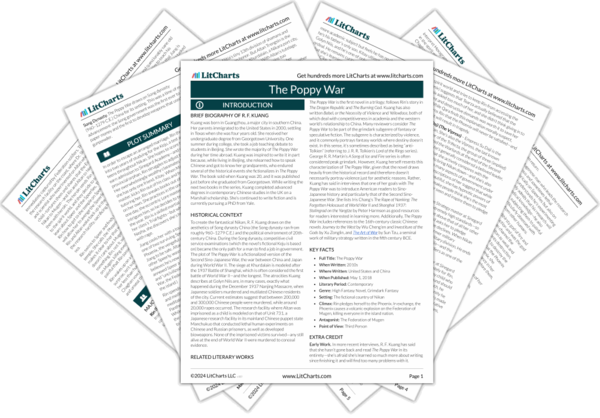Even at this early stage, Rin recognizes that opium has the capacity to offer relief from difficult and stressful situations—that is, people might begin using drugs for sympathetic reasons. Her turn to religion after considering opium is interesting, as it suggests that she’s looking for some way to give her life meaning and herself a sense of control, but for now, she isn’t finding it. However, when she scores so well, it suggests that Rin herself is in control. If she works hard enough, she can make things happen—she does have agency.
